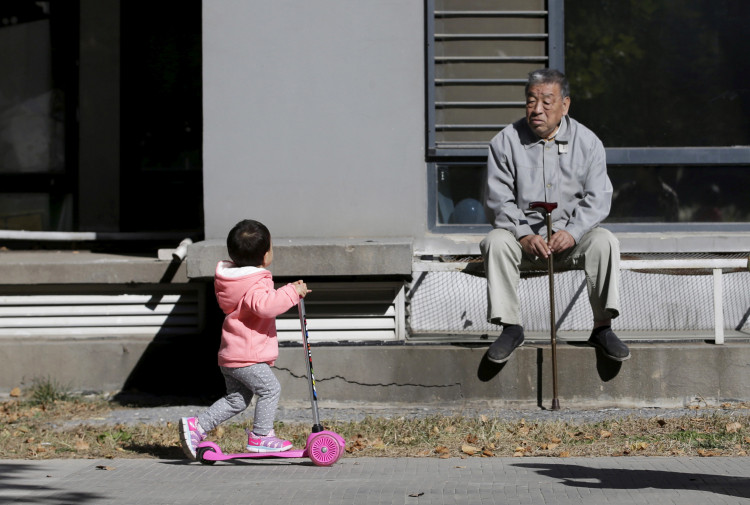Home-based elderly care is slowly progressing in China with more volunteers presenting themselves to care for aged people who either live alone or don't often get the chance to spend time with their families.
In 2017, the local government of China's Shidian county in Yunnan Province collaborated with Changjiang 265, a public welfare foundation to launch the "caring rural left-behind elderly" program, Xinhua reported.
Li Zhengxiang is among the elderly Chinese who are benefitting from the program. He receives a government subsidy of 740 yuan per month but more than the lack of funds, he is more concerned with his emotional battles while living alone at 72 years of age. "My spending is limited. I'm poor in spirit rather than materially," he said.
As part of China's efforts in transforming the experience of the elderly in the country, Li Liping and other volunteers were selected to take part in the program. Li Liping and his volunteer colleagues helped care for the elderly and even bathed them. "If it were not for him, I may have never gotten up and would have spent the rest of my life in the dark," Li Zhengxiang said of Li Liping.
Program Manager, Zhong Tiehua explained that every volunteer is tasked to oversee at least 30 households. Before getting selected, volunteers are also required to complete three professional training courses.
Aside from helping with housework, home-based elderly care volunteers keep the Chinese elder's company and share with them what's going on outside of their homes. To ensure that they're doing well, regular visits of about three times per month are made.
Duan Yuyuan, head of Shidian county's civil affairs bureau, noted that some elderly Chinese live in remote mountains. Due to old age and various illnesses, some are unable to care for themselves. Some of them have passed away with their bodies being discovered days after their death due to their rural locations.
While China has set up nursing homes and elderly centers to help provide companionship for the aged, home-based elderly care is becoming more and more prominent due to the fact that a lot of rural seniors refuse to leave their homes.
"Home-based services, however, supplement our work as it can benefit more aged people and provide targeted and sustainable care," Duan said.
Meanwhile, China continues to establish plans to help empower the elderly in the country. The National Health Commission recently released a work plan that aims to improve elderly care programs. The proposal was created with the help of 12 other government departments.
The Commission's latest move was made following the release of data from the Chinese Aging Well Association (CAWA) and Peking Union Medical College that stated China may turn into an "aged society" by 2026.
According to Shine News, the prediction is in line with data from 2018 that found out China's 60-and-above elderly reached the 249 million count. The figures account for 17.9 percent of the country's total population.





